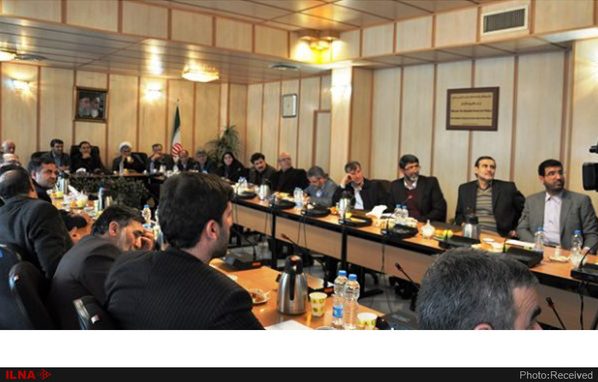Parliamentary Delegation Visiting Evin Prison Told 4,534 Were Arrested in Iranian Protests

More than a month after thousands of people were arrested in Iran after weeklong protests erupted across the country beginning in December 2017, 11 Members of Parliament (MPs) were allowed to visit Evin Prison in Tehran for three hours on January 30, 2018.
MP Allahyar Malekshahi told the conservative Mashregh newspaper on January 30 that the delegation was informed that 4,534 people had been detained nationwide, higher than the number of 3,700 that had been reported earlier.
“Today there are only 438 left in the prisons,” added Malekshahi, the chairman of the Committee for Legal and Judicial Affairs.
However, according to Asghar Jahangir, the head of the State Prisons Organization who accompanied the parliamentary delegation, “only four people detained in connection with the recent protests remain in Evin Prison.”
If Jahangir’s statements are accurate, 434 detainees are being held in other prisons.
The lawmakers refused to answer reporters’ questions about their visit but
Malekshahi stated that the parliamentary committee would make a report of findings available to the public.
Brief reports by semi-official news outlets stated that the MPs visited the prison’s Ward 4 and 209, which are under the control of the Intelligence Ministry, as well as the prison’s quarantine unit and kitchen facilities.
State-funded media outlets also published a photo of a meeting of the State Prisons Organization but no photos of the prison’s interior or inmates were released to the public.
“We talked to a number of people who were detained in the recent riots and we were shown a film recorded by a security camera in connection with the death of one of the detainees,” said Malekshahi.
Sina Ghanbari, 23, died in custody in Evin Prison on January 7, 2018. After news of his death became public, the authorities claimed he was a drug addict who had committed suicide in the prison’s quarantine unit.
On January 16, MP Mahmoud Sadeghi tweeted that shortly before he died, Ghanbari told his parents that detainees were being forced to take “pills.”
One day later, prominent human rights lawyer Nasrin Sotoudeh told the Center for Human Rights in Iran (CHRI) that her conversations with several detainees in Evin Prison had led her to suspect a systematic attempt to “paint the protesters as addicts.”
The State Prisons Organization has denied forcing pills on detainees and threatened to take “legal action” against those who repeat the allegation.
The semi-official Iranian Labor News Agency reported that the parliamentary delegation was briefed by the head of the State Prisons Organization and “spoke to a number of prisoners about shortcomings and the behavior of prison staff.”
The report did not provide further details.
On January 21, Iran’s First Deputy Parliamentary Speaker Ali Motahari expressed hope that lawmakers would be allowed to inspect other prisons where protesters were being to “investigate” the alleged suicides and “remove doubts.”
To date, there has been no follow-up on Motahari’s comments.
In addition to Malekshahi, MPs Fatemeh Saeidi, Mohammad Ali Vakili, Mohammad Kazemi, Mohammad Javad Fathi, Abdolkarim Hosseinzadeh, Mohammad Mehdi Boroumandi, Valiollah Nanvakenari, Ezzatollah Yousefian, Hassan Norouzi and Hashem Ahangari were part of the delegation.






